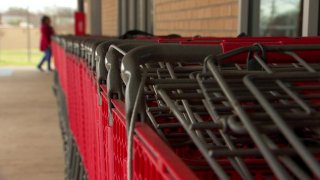How Boston's Daily Table Closure Highlights Food Access Challenges
Boston is a city known for its vibrant communities and thriving neighborhoods. Yet, its residents are facing a serious setback with the recent closure of Daily Table, a nonprofit grocery chain. For a decade, Daily Table played a vital role in making healthy and affordable food available to many. This article examines the impact of its closure on Boston and explores the broader food access challenges the city now faces.

Daily Table's closure leaves a gap in Boston communities that relied on affordable groceries.
Daily Table: A Decade of Community Support
Daily Table was not just another grocery store in Boston. It opened its doors ten years ago with a mission to fight food insecurity and provide residents with affordable, healthy options. According to the Boston Globe, the store served over three million customers and provided more than $16 million in savings to local families. Its locations in Dorchester, Roxbury, Cambridge, and Salem became community cornerstones, especially in neighborhoods where options for fresh food were limited.
Why Did Daily Table Close?
The closure of Daily Table came as a shock to many. The organization faced multiple challenges, including rising food prices, funding shortfalls, and the ongoing effects of the COVID-19 pandemic. As highlighted by GBH News, cuts to federal hunger relief programs further strained the store’s finances. Daily Table’s founder, Doug Rauch, pointed out that many who depended on affordable produce now face harder choices. He noted how programs like Double Up Food Bucks, which helped SNAP recipients buy fresh food at reduced prices, have lost crucial support.
The Impact on Boston’s Neighborhoods
Residents across Boston are feeling the loss. Daily Table’s resources made it easier for families to stretch their food budgets. Without the store, many now have to travel farther for fresh fruits and vegetables, and some may turn to more expensive or less healthy options. Community members from Dorchester and Salem shared their concerns with the Boston Globe, noting the disappearance of a sense of community and the practical struggles of accessing nutritious food.
For many, Daily Table went beyond just selling groceries — it provided jobs to residents in the neighborhoods it served and fostered a welcoming atmosphere. Its approach aimed to offer dignity and choice to those who might otherwise depend solely on food pantries or charity.
What’s Next for Food Access in Boston?
The closure has prompted Boston officials and advocates to seek other solutions for food insecurity. The city council tried to support Daily Table through fundraising and resource sharing efforts, but the financial challenges proved overwhelming. The situation underlines the importance of sustainable funding for programs addressing hunger and the need for accessible grocery options in underserved communities. Those in need of immediate support can find resources through the City of Boston’s Food Justice Department, as recommended in coverage from NBC Boston.
Conclusion: Building a Better Future for Boston
The end of Daily Table’s operations leaves a gap in Boston’s efforts to ensure healthy food is within reach for everyone. As the community adapts, city leaders and neighbors must work together to find new ways to support food access. Supporting local initiatives and advocating for strong social programs can help fill the void and promote wellness for all Boston residents.